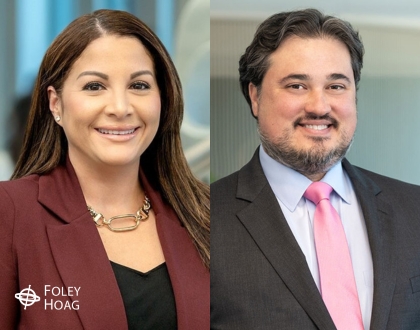Navigating DEI Challenges: Moving Forward in the Face of Resistance

On Wednesday, February 21, YW Boston held a webinar titled “Navigating DEI Challenges: Legal Insights for Moving Forward in the Face of Resistance” moderated by Beth Chandler, YW Boston President and CEO. She was joined by Chris Escobedo Hart, Esq. and Rosa Nuñez from the Foley Hoag law firm, who discussed the legal aftermath of the Supreme Court’s decision to effectively overturn Affirmative Action in June of 2023. The conversation centered around what corporate leaders, business leaders, and those outside the higher education space need to keep in mind regarding the legal ramifications of this decision, early responses to the decision from a legal and political perspective, and recommendations and best practices for pursuing DEI goals legally.
In covering the scope of the decision, Hart said that the Supreme Court’s decision did not cover aspects including recruitment/outreach efforts, yield activities in admissions, financial aid/scholarships, data collection, race-neutral strategies, DEI programming, and employment-based affirmative action programs. He further emphasized that the DEI/employment legal landscape remains unchanged.
“If there’s any good news out of what happened is that there are still opportunities for someone to demonstrate their candidacy,” Nuñez added regarding the decision. “And why they’re the best to join that organization or that higher education or entity based on their life stories and their personal stories and history.”
When discussing the Supreme Court decision, Hart told the audience it’s important for organizations to consider the concurrence made by Justice Gorsuch. “Title VI, which pertains to admissions and Title VII, which pertains to employers, have the same language, and if they have the same language the analysis is going to be the same,” he said. Hart believes this is important because if a Title VII case comes to court challenging organizational DEI programs, similar analysis will come from the court. Because of that, he said, organizations should be thinking about not only what they can do now, but how to future proof their programs in case they come under legal analysis.
Nuñez reiterated that the Supreme Court’s ruling is currently just isolated to the higher education environment. Because of this, she emphasized that organizations/employers should double down on DEI efforts, however with organized efforts to disrupt DEI and the legal parallels described by Hart, they should still be thoughtful in their DEI approaches.
One suggested priority Nuñez mentioned is for organizations to review job descriptions and think critically about where they recruit and if certain roles require a college degree.
“[You want to make] sure that they’re not biased. That you’re removing any indications [that] people of color and women [could be disqualified,]” she said. “How can you make it easier for folks to put their name on the hat? You’re trying to attract more diverse candidates.”
Among the most important suggestions made for organizations to mitigate future legal risk by Hart is for them to critically examine and reflect on what their policies and statements are, preferably with counsel, and make it an iterative process. Nuñez, who is the Chief Diversity, Equity, and Inclusion Officer at Foley Hoag, echoed this in reflecting on the law firm’s own D&I strategy.
“Every day we go back and check and say, ‘Does this makes sense? Can we add this? Is this working?’”, she said. “So, it should be a journey not a destination, and you should not be afraid of or hesitant to edit as you go and make things more relevant to the work that you’re doing right now at this moment.”
We want to thank Chris Escobedo Hart and Rosa Nuñez from Foley Hoag for joining us and bringing their thoughtful reflections and insights.
You can watch out complete webinar through the link below:
